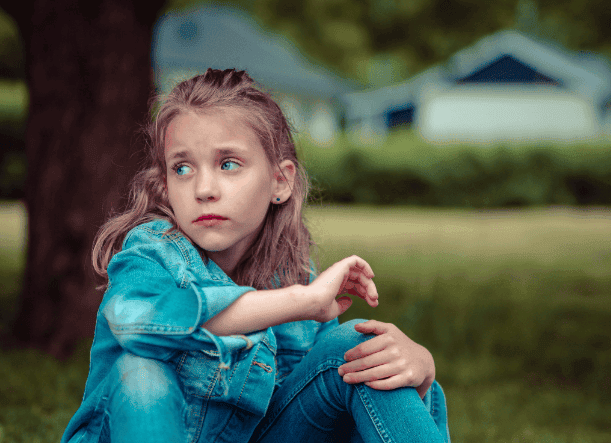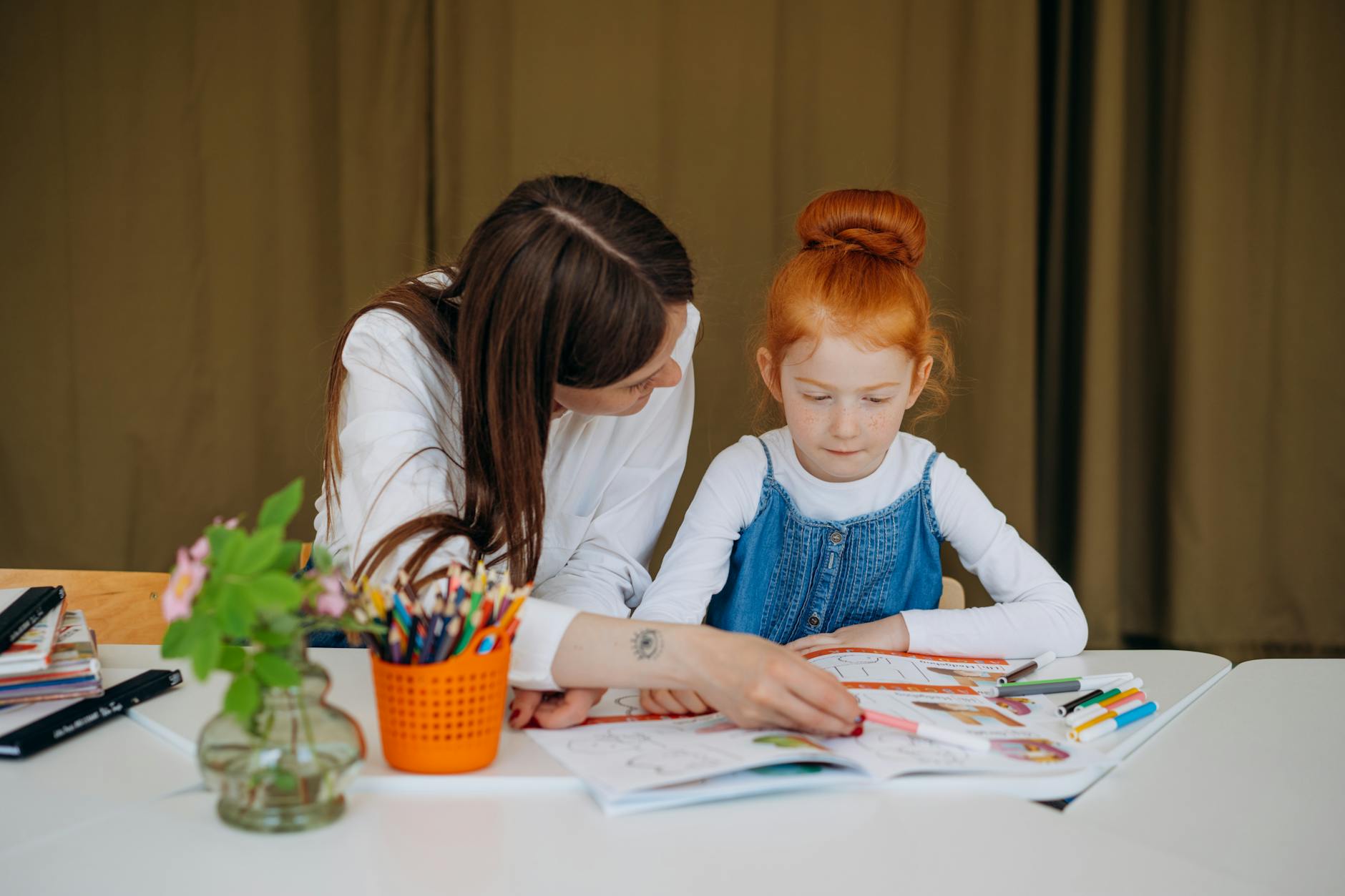Try These 9 Tips if You or Your Child Have General Anxiety
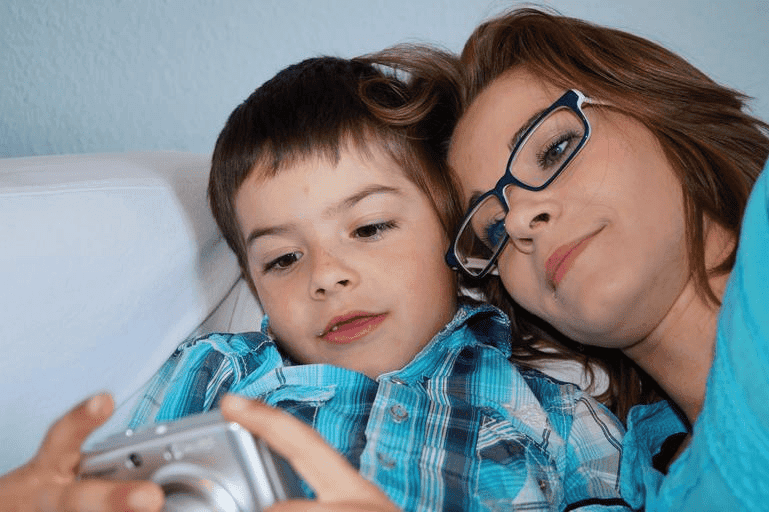
|
Getting your Trinity Audio player ready...
|
I think most, if not all of us, have experienced some anxiety in our lifetime. Our future is uncertain, which makes it exciting but also scary, and for some, that fear can be so overwhelming that it becomes challenging to do everyday tasks and activities.
Sometimes our past experiences have left us feeling crippled with fear and distrust, so we don’t know what to do next, or where to go. We just want to feel content, but that overwhelming anxiety can literally make us physically sick.
There is no quick fix for prolonged anxiety. A combination of strategies needs to be used, in conjunction with each other, to make a lasting impact.
As adults, we know how strong and debilitating bad anxiety can be. It must be even more overwhelming for children.
Their brains are still developing, they are trying to understand who they are, and are trying to make sense of a rather large, confusing, and sometimes scary world.
A lot of research studies talk about the benefits of psychological treatment (such as trauma-based cognitive behavioral therapy and somatization experience therapy) and the use of medications to treat anxiety. While these methods are often recommended and utilized by professionals, today I wanted to focus on something different.
Recommended: Research Shows that the Coping Cat Book Helps Children Who Struggle with Anxiety
Research indicates that moms, dads, and other caring adults can use proactive strategies to lessen the impact of anxiety on their children and themselves.
The first 8/9 strategies I share below can certainly be done alone by a child or an adult, and will still be helpful in reducing anxiety. It is certainly possible that in time your child will adopt these habits and pass them down to their own children.
For now, though, your child may want a partner to help them cope with their anxiety and may enjoy connecting with you.
These nine ideas can be a great way for you to bond and develop a new level of understanding with each other that you may have not had before.
Research also supports that positive parent-child relationships foster a more confident, and less anxious child so just doing activities together is a plus! Especially when there is a common goal of self-care because it teaches a great lesson.
You May Also Like: Talk Space Online Therapy
9 Research-Based Strategies You and Your Child Can Do Together to Reduce Anxiety
1. Be in nature together!
Research demonstrates a strong connection between time spent in nature and reduced stress, anxiety, and depression. Hope for at least two hours in nature a week. If it’s cold, bundle up. The fresh air, sun, nature sounds, and beautiful sky can do wonders.
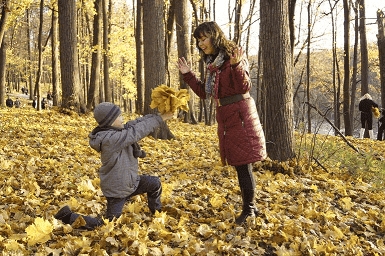
2. Exercise with your child!
Research shows a clear link between exercise and anxiety reduction. Take a walk, stretch, jump rope, play a sport, dance, ride bikes, or anything else that you and your child would pick as their favorite movement-based activity. You can combine your exercise with being outside as well.
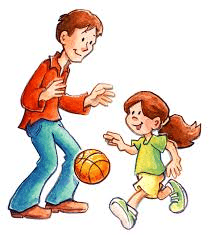
3. Practice mindfulness with your child
Mindfulness is the act of noticing things in your environment, and within yourself, just as an observer.
Rather than looking at or feeling things with judgment, when we are mindful, we observe ourselves and our environment objectively (e.g., a tree, the water, our favorite color, how it feels when we eat, what water feels like on our face, what anger feels like in our bodies, why may it feel that way, etc.).
Research shows that practicing mindfulness has a positive effect on our emotional well-being, and reduces stress and anxiety.
4. Work together on self-compassion!
We need to tell ourselves the same things we would tell anyone else we love and care about (e.g., you are allowed to make mistakes, you are a good person, you try hard, you don’t always have to know the answer, it is okay to cry, it’s understandable that we sometimes feel nervous or scared, etc.).
We should not be harsh on ourselves with our words with statements like,
“what was I thinking, that was so dumb of me, I always mess up, etc.”
Research supports the notion that self-compassion and positive words to ourselves reduce anxiety. Many kids and adults are not naturally compassionate towards themselves, yet they are compassionate towards others.
It is important that we are role models for our children when it comes to showing them what compassion and empathy for the self and others look like. We need to treat ourselves well. We need to be patient, caring, and understanding with ourselves, just as we are with others. We can practice compassion and self-compassion any time of day, alone or with someone else.
5. Create, put together, make, or fix something.
Research shows that working on tasks such as crafts, projects, cooking or any other creation increases our self-confidence. Projects and creations also lead to reduced anxiety and an improved mood.
With children, it is so important that we give them freedom and choice within their projects. One child may enjoy fixing a toy car and another might like playing guitar. Either way they are using their skills and abilities to make something positive happen while sharpening their mind.
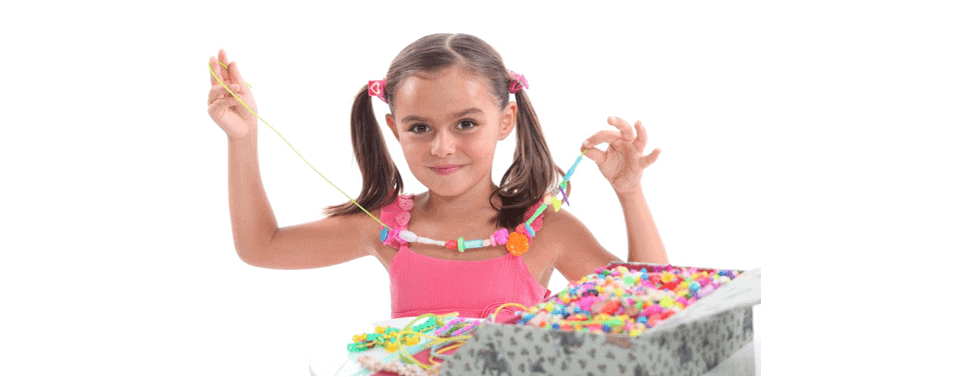
Recommended: The Positive Effects of Beading on Mental Health
6. Write your feelings down (you can also type, draw or paint them):
Research shows that getting your thoughts and feelings out on paper helps you prioritize problems, fears, and concerns. You and your child can sit together while you each journal in your own books.
Journaling is a way to vent. It is an outlet to express anything you want or need to. It can also be helpful to read over how you felt at a later time to get a different perspective and re-examine the situation if needed to get your thoughts in order.
Recording your feelings and thoughts on paper also allows you to track symptoms of anxiety from day to day and look for patterns to see if anything specific is triggering the anxiety. You and your child will get to know yourselves better, and you will both get to practice your drawing and writing skills side by side.
7. Listen to music you love!
Recent studies in neuroscience show that music interventions lead to stress reduction and increased well-being. Music helps to decrease feelings of restlessness, stress, and a rapid heartbeat, which are increased sensations during anxiety. Listening to music and making music/singing, have been associated with lower levels of cortisol – the body’s stress hormone.
Recent brain imaging studies on music and emotion showed that music may strongly influence the amygdala, which is a section of the brain that plays a large role in the regulation of emotions. Music helps us release endorphins, a chemical released by our brains that makes us naturally feel good.
8. Make healthy food choices together.
Foods rich in magnesium, zinc, vitamin B, omega-3 fatty acids, and antioxidants demonstrate a positive effect on our mood and have been shown to decrease feelings of stress and anxiety.
If you are planning to utilize healthy eating as a method for combatting anxiety; I encourage you to make gradual food changes over a period of time, which become part of your regular routine.
Some examples of foods that are shown to have a positive effect on our mood include fish, nuts, avocado, asparagus, beef, strawberries, and spinach. You can read more about the research and about eating healthy foods to reduce anxiety here.
9. Offer hugs, security, and predictability if possible.
Hugs are shown to release endorphins, a chemical in the brain that helps us feel good. Research demonstrates that hugs are helpful in reducing anxiety.
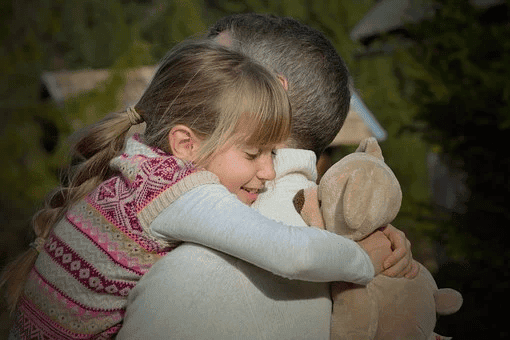
Research also demonstrates the positive effects on children’s mental health when they are in a generally consistent, predictable, and secure environment.
Children are also more at ease when they know what to expect in terms of rules, consequences, and their parents’ moods and types of reactions to stressful events. When children feel safe and cared for in their environment (whether that be at home or in school) they’re likely to be less anxious and more confident.
Information About Abuse:
Anyone in an abusive situation will likely have high anxiety. If you or your child don’t feel safe in your home, please reach out to a local agency in your area which provides support for abuse.
Abuse from a parent or partner can be physical or sexual, but it can also be emotional (e.g., ignoring a person’s feelings or their attempts at communication, mocking or belittling them, threatening to hurt or scare someone in the house, screaming at them repeatedly, etc).
Abuse can also be verbal (name calling, put downs – “all you do is make things difficult”) or financial (e.g. “if you don’t go to work every day after high school your little brother won’t have enough to eat” or “I know you earned that money but Daddy needs it. He’ll give it back”).
If you know a child or adult in a potentially abusive situation, please reach out to the services in your area and ask for support. If you are in the USA here are two numbers to call.
The National Domestic Violence Hotline 1800 799 SAFE
Childhelp National Child Abuse Hotline 1-800-422-4453
You can also do a Google Search for abuse services in your area.
Feel free to add international numbers or other helpful phone numbers in the comments.
Here is a video about the impact of neglect and abuse in childhood. Please share so we can spread awareness about what so many kids go through.
Trauma = Anxiety = Getting Stuck
.Education and Behavior – A free online library to support children in the areas of academics, behavior, and social-emotional development! Keeping us on the same page!



